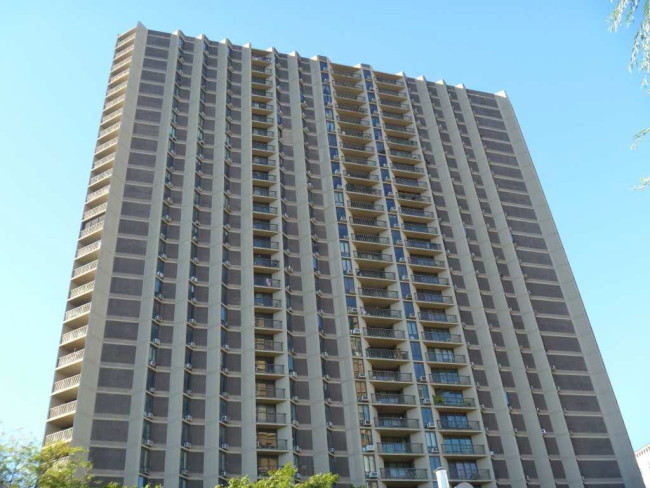Can you leave your Mitchell Lama apartment to someone in your will?
- Mitchell Lama apartments can only be transferred by a legal process called succession
- Successors need a family-like relationship and to have lived there two years before the death

Your relationship with the tenant must either be as an immediate family member or what's called a non-traditional family member.
MKshots/iStock/Getty Images Plus via Getty Images
Can a Mitchell Lama apartment be handed down to someone through the primary owner's will?
The only way a Mitchell Lama apartment can be transferred to someone else is by a legal process called succession but not through a will, our experts say.
"These cooperatives have a primary residence requirement and may be transferred to a family member only by succession which is a regulated process with legal standards," says Dean Roberts, partner at Norris McLaughlin.
Long waiting lists for Mitchell Lama apartments
Mitchell Lama apartment buildings were set up to provide housing to low- and moderate-income city residents and to ensure they continue to serve that population, there are ownership restrictions and you need to live in the apartment as your primary residence.
Most Mitchell Lama apartments have very long waiting lists, with some applicants waiting a decade to be allocated a place. "These apartments are meant to go to New Yorkers who go through the normal application process—so if a person that's not entitled to succession gets succession, they are bumping someone else who has been on a waiting list for years," says attorney David Hershey-Webb, a partner at Himmelstein McConnell Gribben & Joseph.
Requirements for succession rights
You can only apply for succession after the death or permanent departure of the person you have been living with in the apartment. In order to get succession rights to the apartment you need both a family-like relationship with the tenant who has died and to have lived in the apartment for two years before the tenant's death or permanent move. So your relationship with the tenant must either be as an immediate family member or what's called a non-traditional family member.
"That means someone who has an emotional and financial interdependence as if they were family members," Hershey-Webb says.
The requirement that you've lived in the apartment for two years prior to the primary resident's permanent departure or death is reduced to one year if the person seeking succession is 62 years or older or disabled.
To determine residence, the annual income affidavits filed with management by the primary resident will need to identify the successor as living in the apartment. "It could work against you if you are not listed in the income affidavit," Hershey-Webb says. Even so, you could still get succession.
The management will also crucially review your New York State tax returns. "If you have not filed New York State tax returns at the address where you are seeking succession, you will not get succession," Hershey-Webb says.
The other important documents you'll need to provide include voting records, your driver's license, and bank and credit card statements.
The application is filed with management and if your application is denied, you have a right to appeal to the building's supervising agency. This will either be NYC's Housing Preservation & Development or New York State's Division of Housing and Community Renewal.
A will can only transfer equity not shares or occupancy
If you are identified in a will as the sole beneficiary of someone who lived in a Mitchell Lama co-op, you don't get the right to live in the apartment unless you can meet the succession requirements. Neither do you technically inherit shares in the building.
"Wills can be set up to bequeath the shares but that results in the beneficiary receiving the equity value for the apartment, not the right to possess the apartment," Roberts says.
So a will could identify who would receive the equity in the apartment but it cannot assign shares or provide for any occupancy rights. Hershey-Webb points out, if there is no succession there will be deductions in the equity for maintenance and renovation costs. He says he's seen equity values in the region of $35,000.
The co-op always has control of the equity and is the one that releases it, Roberts says. If no one is seeking succession, he recommends filing a small estate proceeding. "Oftentimes, when it's only for a few thousand dollars and the parties are well known to the co-op, there is a decision to simply release the small payments for simplicity's sake," he says.
If succession is granted the equity automatically transfers to the new shareholder, Roberts says. Any further dispute between other family members about equity does not involve the co-op, he adds.
Succession does not guarantee the same apartment
Mitchell Lama has the legal right to downsize the apartment of a successor. So if a mother and daughter are living in a three bedroom and the mother dies, the Mitchell Lama has the authority to require the successor to transfer to a one bedroom or studio.
Hershey-Webb says this is rare but increasingly possible as the government seeks to make the policy more aligned to the purpose of these apartment buildings.
"If this happens, you should expect a reduction in the maintenance as well as the equity," he says.
You Might Also Like




























